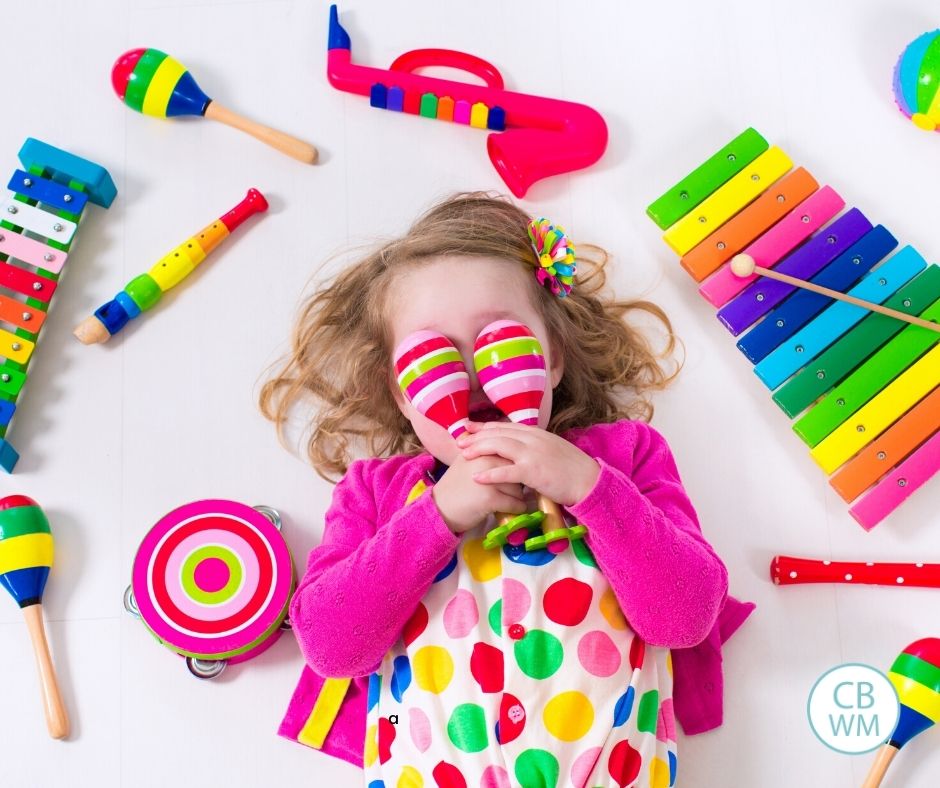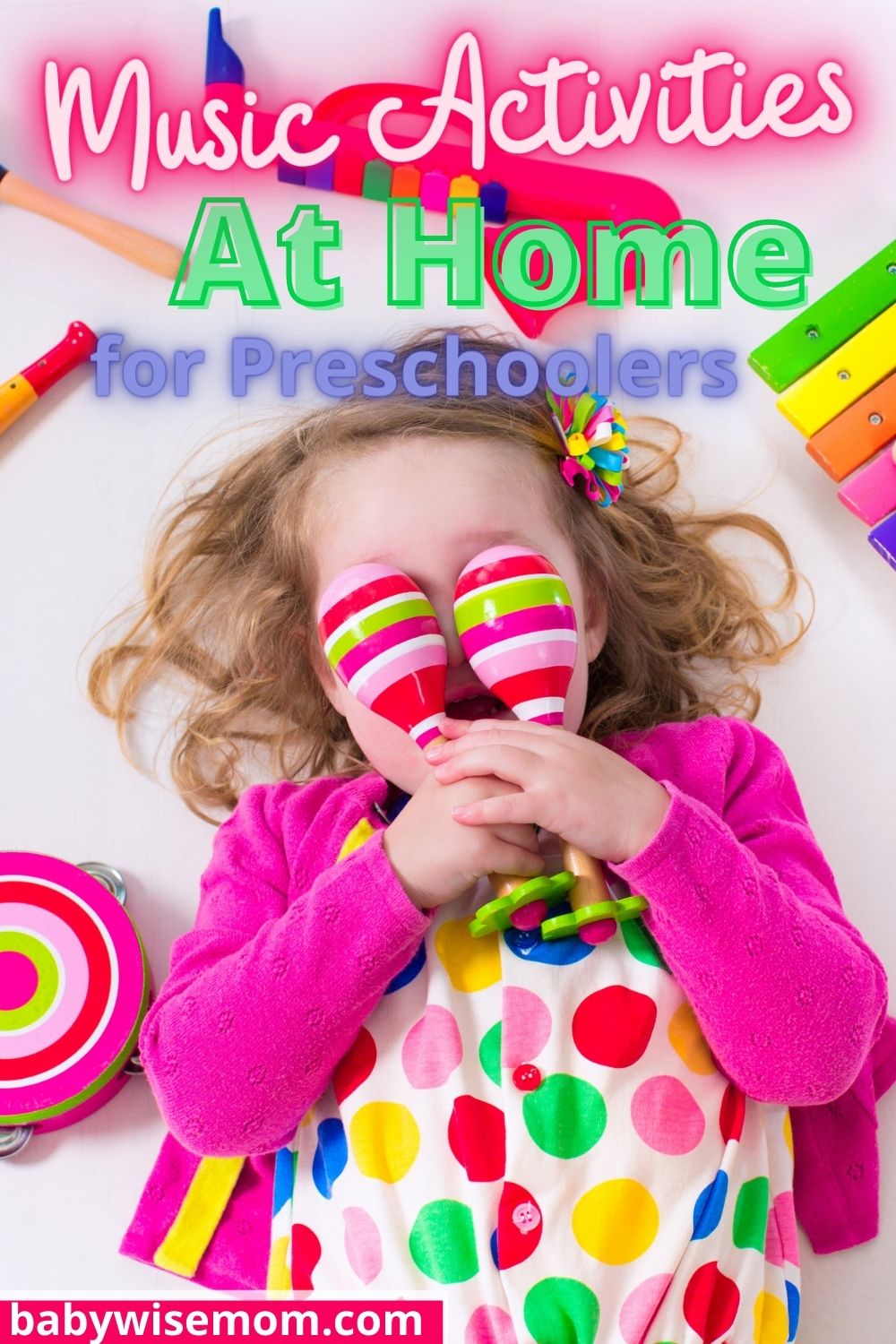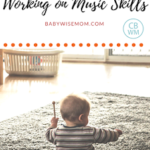6 ways to integrate music into your preschooler’s daily life. This will prepare your child for Kindergarten in a variety of ways!

I love music. Love, love, love. I love many forms of music. Beyond listening, I love to sing. I am currently the choir director at my church and I just find such a great power in music.
Something that amazes me about music is that it appeals to any type of “brain.” The logical brain can do music because music has its black and white component (literally in the notes!). It also appeals the creative brain because you can do so much with music and there is much room for interpretation.
My husband and I both come from musical backgrounds. In fact, we met in a choir. So we both have a high value in music.
Because of that, we have thus far started our children in learning to play the piano at the start of kindergarten. Brayden started then and Kaitlyn is scheduled to start then.
Recently, Brayden’s first grade teacher commented that she can tell he plays an instrument–she can see the benefits of it in the way he thinks.
There are many claimed benefits to music. Here are some lists for anyone interested:
Whether or not you are a big believer in the benefits of music, I think one thing that cannot be denied is that music is fun for children. Music is also usually taught in schools.
On Becoming Preschoolwise (affiliate link) has a section on how to prepare your preschooler for music in school.
“Children should be introduced to music ASAB (as soon as birth!) or sooner.”
(page 126)
Here are some ways to expose your children to music:
Post Contents
1-Have music as part of independent playtime
My children all love having music as part of independent play. They each have an iPod (that we got for cheap off of our local classifieds) and an inexpensive iPod player. This one is our current favorite.
Initially, we did some classical mixed with toddler tunes for Brayden and Kaitlyn. With McKenna, however, I exclusively played church songs for her during independent playtime. I plan to follow the same path with our next baby. McKenna (now three) does now listen to a variety.
She has hundreds of children’s primary songs memorized from her years of church songs. I love walking through the grocery store and listening to her sing, “I am a child of God!” and “I love Mommy, she loves me, we are a happy family!” McKenna has a real passion for singing.
“Stock up, because music is such an enjoyable way to learn, and it is good for the soul” .
(page 127)
I completely agree–good music is good for the soul. Folk songs, classical songs (while Baby Einstein has its share of media problems right now, I do not hesitate to say their CDs of classical music are fun for children), patriotic songs, church songs…I am also into “mainstream” music and I like to expose my children to at least one good song from every artist I respect.
2-Sing Along
Your child might naturally do this or might need you to get him started. We do a lot of singing at our house.
I make up songs constantly. We sing in the car. I sing before every nap and bedtime. We have fun singing. Don’t criticize the “pitch” of your child. Most children sing at least a bit off. Encourage your child to sing and love it.
3-Rhythm Clapping
After first reading this idea in preschoolwise, I started doing it with Brayden. You clap a pattern and have the child clap it back. As your child’s skills improve, you increase the difficulty.
You can translate this activity to fit into a variety of settings. A long wait at the doctor’s office can be made more interesting with some leg tapping. Being able to clap a rhythm back that you hear is a great skill to attain.
4-Note Singing
Rhythm clapping is something I often did in tryouts for various choirs, so I added another activity we did at tryouts. It was singing notes back.
The conductor (or accompanist) would play out a sequence of notes and I would have to sing it back.
I do this with my children. It helps improve the ear. I start with three notes and do common intervals.
5-Instrument Toys
There are lots of packs of toy instruments you can buy. Children love these loud things.
6-Music Class
I haven’t ever taken one, but there are various “Mommy and Me” or “Kindermusik” classes out there.
When the time is right for your child, you can also start formal lessons. Take it child by child and talk with the teacher about what he/she recommends.
Don’t feel the need to rush. We have started pretty young so far. Our reasoning is that our children have both been more than ready for kindergarten. We knew it wouldn’t be an intellectual challenge and we wanted something to stimulate the mind.
We also have half day Kindergarten here, so we have plenty of time for lessons and for practice.
In my opinion, the first few months of piano are the most challenging as the child is learning a new skill and exercising those fingers. After that, skills all build on top of themselves.
You need to be willing to sit with your child at the piano during practices–every day–for the first few months at least.
Conclusion
There are many benefits to having music in your home even if you do not intend to do formal lessons at all. You can integrate simple music in your home. This will benefit your child for years to come!
Related Posts
- How to Know if Your Child is Ready for Piano Lessons
- Scheduling Homework Time/Piano Practice Time/etc.
- Musical Activities for Toddlers {Guest Post}



